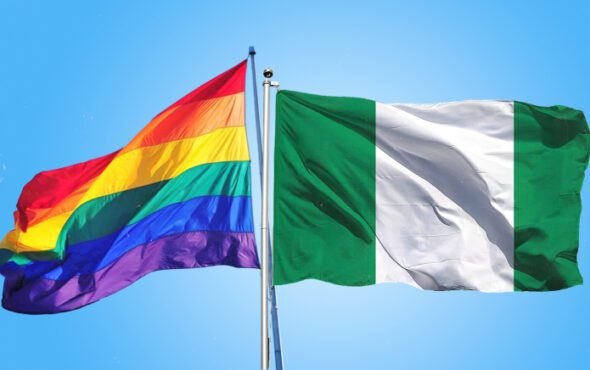
Nigerian authorities are using a 2014 anti-LGBTQIA+ law that bans same-sex weddings to raid parties and publicly parade those arrested as a form of deterrence, said prominent Lagos lawyer Chizelu Emejulu who has represented many of those detained.
Two mass arrests in the past three months go beyond the scope of the law and directly contravene the right of assembly, guaranteed by the constitution, said Emejulu.
Police arrested 76 partygoers in the northern Nigerian state of Gombe in October, while in August, 69 people were detained in the south in Delta state on suspicion of attending a same-sex wedding.
“State actors like the (police) will always justify their infringements on the rights of LGBTQI persons through these mass arrests on the grounds that those arrested are conducting same-sex marriages,” Emejulu told Openly in an interview.
Merely attending a birthday party, or any party, does not mean those present were there to celebrate a wedding, he said.
Emejulu has been one of the most prominent legal advocates for LGBTQ+IA Nigerians since 2018 and has represented defendants in several mass arrest cases. He was counsel in a case against the federal government last year, in which the High Court affirmed the right for LGBTQIA+ expression and association.
In 2022, he became the executive director of Minority Watch, an organisation of legal professionals committed to upholding LGBTQIA+ rights.
The federal anti-LGBTQIA+ law makes same-sex sexual activity in Africa’s most populous nation subject to a prison term of up to 14 years. It also bans same-sex marriage, relationships and public signs of affection.
In addition, 12 of Nigeria’s 36 states apply sharia law. In those 12 states, in the predominantly Muslim north, same-sex acts could lead to the death penalty for men and whipping and/or imprisonment for women.
In 2014, four men were whipped in northern Nigeria after being convicted of gay sex. Last year, an Islamic court in the northern state of Bauchi sentenced three men to death by stoning for engaging in homosexual acts, but it is not clear whether the sentences have been carried out.
Suspects paraded in front of the media
Since 2018, the national law has resulted in three prominent mass arrests. That year, 57 men were arrested at a Lagos birthday party and accused of public displays of affection with people of the same sex. A court ultimately threw out the charges due to lack of evidence.
Emejulu said it was notable that the court dismissed the case rather than acquitting the accused. That means it cannot be cited as a precedent to prevent future mass arrests.
He said a tactic used in this case and subsequent arrests by authorities was to violate the right to the presumption of innocence by “parading” the arrested in front of the media.
“This singular act always compromises the safety and security of the suspects,” he said.
For those arrested at the Lagos suburb party, exposure in the media meant many relocated for fear of being attacked by neighbours, and some lost their jobs.
A police spokesperson in Delta state, Bright Edafe, said the 69 arrested there in August had been charged, but declined to make further comment. Gombe police did not respond to a request for comment.
Those arrested in such cases often face difficult bail conditions, said Emejulu.
In the Delta state case, the 69 arrested were put on remand for two weeks and then released on bail of 500,000 naira ($636) each, said the lawyer representing the accused, Ochuko Ohimor.
The typical monthly wage in Nigeria is 43,200 naira ($54), according to Statista.
“Stringent bail conditions like these are calculated to serve as punishment to any LGBTQI person who would dare to be publicly expressive of their sexual orientation and gender identity,” Emejulu said.
In the Gombe case, there is also a looming fear of conversion therapy, according to Emejulu. Twenty-three of the 76 arrested are still in detention and Emejulu said authorities are making arrangements to send them to a rehabilitation centre.
“That place will most certainly be a place where conversion therapy is to be inflicted on all of them. They have warned that the alternative to sending them there would be to send them directly to jail,” Emejulu said.
The authorities’ focus on LGBTQIA+ people has had a wider impact in terms of the public’s perception of the community, said Emejulu. “The message is simple: if we can attack them without consequence, you too can do the same.”
($1 = 802.0000 naira)
This story is part of a series supported by HIVOS’s Free To Be Me programme
Reporting by Muhammed Akinyemi.
GAY TIMES and Openly/Thomson Reuters Foundation are working together to deliver leading LGBTQIA+ news to a global audience.



